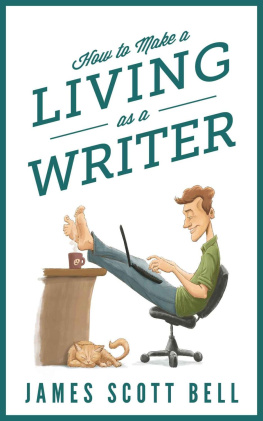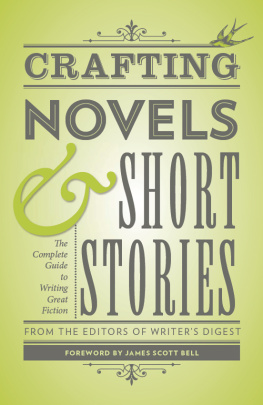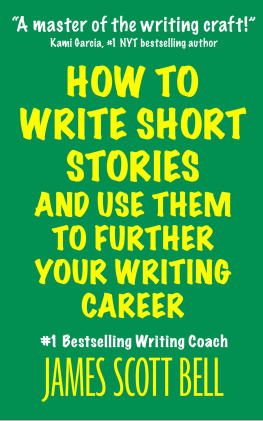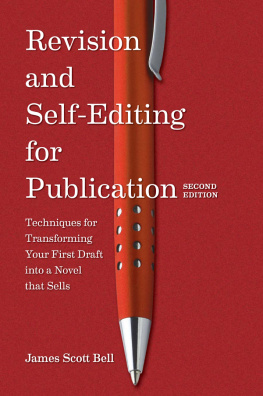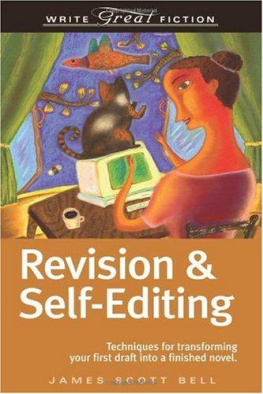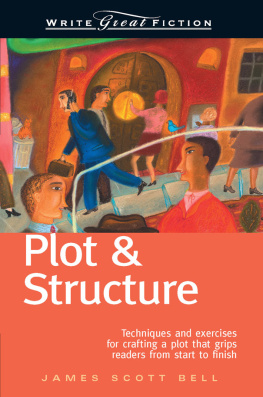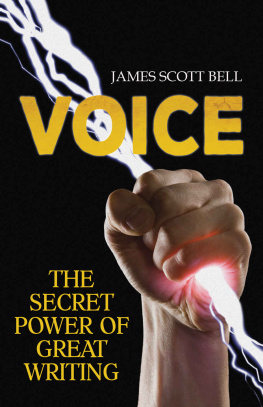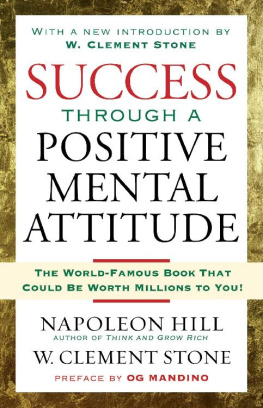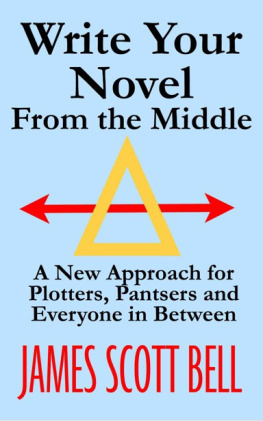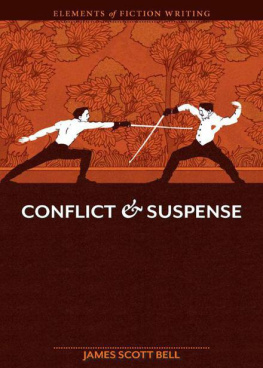The Mental Game of Writing
How to Overcome Obstacles, Stay Creative and Productive, and Free Your Mind for Success
James Scott Bell
Copyright 2016 by James Scott Bell
All Rights Reserved
Published by
Compendium Press
Introduction
Our doubts are traitors
And make us lose the good we oft might win
By fearing to attempt.
Shakespeare, Measure for Measure
When I was first learning to play golf, at the age of forty-one, I went through that stage all new golfers go through. I call it the Space Odyssey phase.
Remember in the Kubrick film when that grunting hominid first discovers he can break things with a bone? He goes wild! Things breaking all over the place! Then he throws the bone into the air with a tremendous howl!
Well, I got to the point where my young golf swing was just breaking things all over the place, especially grass and dandelions.
So one day I was on a very easy course, a nice looking piece of land in Los Angeles, and I took out my five iron and proceeded to shank another ball into the water.
With a tremendous howl I flung my golf club, with both hands mind you, as far into the air as I could.
It whirligigged toward the heavens. I watched it, as if it were flying in slow motion, until it came to rest in a large, leafy bosom of a eucalyptus tree.
And did not come down.
Its probably still there, providing a perch for a weary sparrow.
As for this weary golfer, I considered giving up the sport altogether. Who needed the anxiety?
But I had fallen in love. There was nothing to compare with the feeling of that one great strike, which happened about once every 500 swings. I wanted to play this game. I wanted it to be part of my life.
Desperate, I began searching for golf books that would show me exactly what to do with my hands, hips, arms, hands, feet.
But then I came across a book that told me to attend to what was in my head. It was The Inner Game of Golf by W. Timothy Gallwey. The book made an astonishing claim. You could actually lower your score significantly by mastering what goes on inside your noggin.
You could learn to relax, perform under pressure, and make a repeatable swing. You could learn to get out of your own way, so youre not over thinking everything you do. The game would be more fun and youd be better at it, too.
I was ready for anything! So I spent several months working on my mental approach to golf. And you know what? I didnt throw any more clubs. That was a partial victory! But I also got better. A little, not a lot, but at least I was headed in the right direction.
I learned that when you play golf youre actually supposed to play golf. Its a game. You play it. You dont think it.
Its before and after a round that you do your thinking, your analysis, your practicing.
You use whats called muscle memory to instill mechanics, and then when you get out on the course you just try to enjoy it. Sure, during a round you might correct something, or notice a hitch in your swing. (By the way, its a lot better for you to notice it than for your playing partner to notice it, for there is nothing more annoying than having your partner telling you how to line up your shot as you are actually ... lining up your shot! It would be just as annoying to have your critique partner looking at your words as youre typing them and telling you not to do this and not to do that. You just jumped out of her Point of View! Retype it!)
When you write, you should write. You should play. Then you balance that with analysis and learning and training and drills.
You learn to get out of your own way.
For the writer, that means learning how to silence your inner critic. Thats the part of your brain that has been trained since you began schoolgetting tested, getting teased because your blocks werent lined up the right way according to the smarty-pants in your kindergarten class. Years and years of this have built up an inner critic the size of Godzilla.
The biggest part of the mental game of writing is learning ways to cut this monster down to size.
And then freeing yourself to write, learn, grow, handle rejection, keep going.
Rinse.
Repeat.
Do this, and you will begin to feel unstoppable.
And feeling it, youll be it.
Ive written this book because I believe the mental game of writing is as important as learning the craft. For it does not matter how much you know if you cant get yourself motivated to apply it. Especially when the proverbial chips are down.
After nearly a quarter century of making my living as a writer, Ive gone through every iteration of the mental game of writing. And just as I learned to play an enjoyable round of golf, I learned how to keep writing with joy, too. Not that it always is, because there are challenges to overcome, most certainly.
But knowing in your head that you can overcome is a confidence builder like no other.
And when youre confident, you write better.
So lets build.
Decision
If you want to be a writer, you have to decide to be a writer.
Theres a world of difference between wanting and deciding.
You can want to be a writer and sit around with mental images of yourself, daydreaming about having a line of readers waiting for you to sign copies.
Or you can decide to be a writer and wake up early each morning and type.
The first thing I did when I decided to be a writerafter ten years of believing I didnt have what it takes because thats what people told me, youre either born a writer or youre notwas go to Samuel French, a writers store in Los Angeles, where I bought a black coffee mug with the word WRITER in gold on it.
It was for me, and me alone, to look at each dayand then prove it to myself by writing a quota of words.
I was a writer, because I decided to be.
Note, it was a long time before I told anyone else I was a writer. In my mind, I couldnt say that until the majority of my income was coming from the written word. (But thats just me. If you want to call yourself a writer in public, you go right ahead. And if someone scoffs or gives you a pitiful smile, make that person an ax murderer in your next book.)
The next thing I did was put inspiration in my office.
One of them was a two-page, full-color ad from a magazine. The ad was for the Apple Macintosh, early version. In this ad a guy is in his urban apartment, a nice view of the city outside the window, feet propped on the desk, petting a cat on his lap, and looking at his Mac.
He was dressed in jeans and a sweater.
The whole vibe was of a guy who worked for himself, at home, because the Mac let him.
I was a Mac guy myself, from the get-go, from the 1984 Super Bowl ad.
I savedat ad (I still have it) and looked at it frequently.
Then I found a postcard with one of my favorite writers, Stephen King, sitting in his workspace at home, his feet up on the desk, his dog right below him, word processor nearby. I framed it.
Then I found a photograph of John D. MacDonald, seated in his home office, pipe in mouth, fingers poised over the keys of his electric typewriter.
I framed that, too.
Finally, I was inspired by the career of Evan Hunter, who also wrote under the name Ed McBain. Prolific. Solid. Professional. I bought a hardcover of one of the Hunter titles, The Moment She Was Gone, and on the back was an author photo of Hunter, arms crossed, glaring. To me, a fellow writer, he seemed to be saying, Write, damn you!
So I put that book on one of my shelves, with the author photo facing out. Heres what I would see each day



